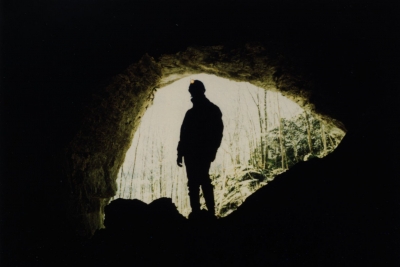
The study of caves is called speleology. A scientist who studies them is a speleologist. Speleology is both a niche area of geoscience and a broad area of study that looks at many aspects of caves. There is much we can learn from these curious geological formations, from how they formed to which zoological species inhabit them, to their geological profile, examining how stalagmites and stalactites form, their internal hydrology (the profile and processes of water bodies within caves). They will also be interested in caves as habitats for paleontological and anthropological remains.
Caves are often a microcosm of niche ecology, therefore those with a professional interest in the biological sciences – zoology, botany, mycology, entomology might be drawn to speleology too in examining the native plants and animal species that grow and thrive within a cave system. In recent years, researchers have found plants that can grow in very low light levels. Understanding these plants may shed light on a variety of interrelated issues such as plant genetics.
Caves are also important sources of mineral deposits. Speleologists might work to mine these resources or examine how they might have come to form there. Speleologists might also work as cartographers, developing maps for caves used for recreational or tourist use – devise the safest route through a cave, or come up with ways to ensure they are safe. They work mostly in caves but will spend their time between offices and labs and the cave systems that they study.
Credit : Environmental Studies
Picture Credit : Google




